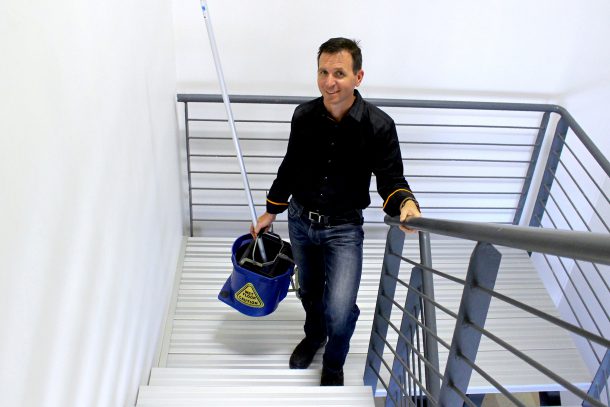
We all know that training is essential for any business. The big questions are:
- How do you develop an effective training plan to support the business goals?
- What funding opportunities exist to enable you to bring your training plan to life?
Training plans come in different shapes and sizes. Some companies see training as a cost, where others see training as an investment into the future of their business.
There really is no right or wrong here. It is all about the company leadership and their perspective on people, culture and positioning.
Henry Ford said, “The only thing worse than training your employees and having them leave is not training them and having them stay”.
Ask yourself this question:
What do you want to be known for?
- Being the best?
- Being the most socially responsible?
- Being an employer of choice?
- Being a business that everyone in the industry looks up to?
- Being the most profitable?
What does that mean? What does that look like? What is the strategy to get you there?
To achieve most of the above goals you have to be:
- The most innovative
- The most quality focused
- The most people focused
Businesses who are the leaders in their field have solid plants, which have a clear plan.
To achieve any of the above goals, a focus on innovation and training are essential.
So, what does a focus on training look like?
Invest in your people
The first thing is identifying a need to invest in people. Regardless of how we look at it, we can not run a business and grow it to the best it can be…. without an investment in our people.
We need to look at what skills our teams have and what they need to acquire:
- It could be industry-based skills such as cleaning high storey windows, learning techniques to minimise back strains.
- They could also be skills to lead people, deal with customers, negotiate with suppliers, quote on projects, quality processes or to manage time more effectively.
Some of the skills needed can be acquired through Nationally Recognised Training.
The benefit of the various nationally recognised qualifications out there are that they can often be obtained through on the job training and can potentially attract government subsidies. (There are currently wage subsidies available that can attract up to $28,000 per eligible employee – see below)
The benefit of short courses is that you can find there are a range of training providers, mentors and specialists who are experts in a very narrow subject matter and can support your staff in adopting the skills.
ISSA also have a range of courses developed to meet specific industry needs such as internal facility auditing, management training.
One key time in the employee lifecycle when training is highly important, is during the employees onboarding.
There are onboarding programs specifically designed for the industry, while catering for the diverse learning styles of individuals and the multicultural nature of the industry.
It is important to consider the career goals of your team members, where they want to be in 2 or 5 years and how you can support them to develop which supports your business growth and their own personal goals.
Invest in your systems
Growing a business in this fast-paced world we are living in is a challenge without the right systems to support you.
We need technology to help automate and create efficiency. To allow you to have the key information at your fingertips – this is such an asset!
There are so many industry specific workflow and CRM tools on the market to explore.
We also need quality systems to be able demonstrate that you can consistently perform work at the highest level, while also giving you a competitive edge.
ISSA’s CIMS program is a great example of a program that helps to address these needs.
There is so much to be said about training and in favour of training. It is an investment in your people and in the future of your business.
Don’t miss out on our fabulous workshop on the which will explain how you can apply for the wage subsidiary grant.
Lauren Micallef is ISSA Oceania manager. For more information about the Wage Subsidy Grants contact: Diem (Yim) Huynh from Mia Consulting Services on 0401 695 844 or email diem@miaconsulting.com.au
This article first appeared in the November/December issue of INCLEAN magazine.
Comment below to have your say on this story.
If you have a news story or tip-off, get in touch at info@incleanmag.com.au
Sign up to INCLEAN’s newsletter.




